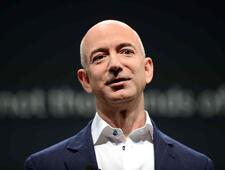 Remember December 21, 2012? That was the day the world was supposed to end, according to the Mayans. As we know now, given it’s October 3, 2013, that didn’t exactly work out. But when will the end of newspapers arrive? When, exactly, will the last 14-year-old paper delivery boy or girl (come on, it’s 2013, we need to be PC) sky hook the bundle of news from his or her satchel in his or her best attempt to land it on your driveway?
Remember December 21, 2012? That was the day the world was supposed to end, according to the Mayans. As we know now, given it’s October 3, 2013, that didn’t exactly work out. But when will the end of newspapers arrive? When, exactly, will the last 14-year-old paper delivery boy or girl (come on, it’s 2013, we need to be PC) sky hook the bundle of news from his or her satchel in his or her best attempt to land it on your driveway?
Here’s when: November 26, 2045. At least I hope it’s not before then. Right now our business at Mediaspace Solutions is based on publishing and the variety of advertisers who have a desire to reach audiences through newspapers. November 26, 2045 is the day I’ll turn 65, and then I can retire, and the publications can stop their presses and pack up shop. But let me tell you something: that’s not going to happen. It’s not going to happen November 26, 2045 and it’s most likely not going to happen any time close to or after that either.
The thing is, newspapers and their cousins (magazines, trade publications and many other printed materials people read to stay up-to-date on what matters to them) still provide value. So much value, in fact, that very smart people who have a lot of money, and don’t like losing that money, are investing in newspapers and other publications with the idea of generating revenue, positive revenue, from these businesses.
You may be asking: ‘who are these people investing this money? They must be people with small brains and no understanding of the world or the direction of society.’ I have something else to tell you: they’re people who have grown very successful businesses and names you are most likely familiar with. Two of them are Jeff Bezos of Amazon and Warren Buffett of a little company in flyover country called Berkshire Hathaway.
Last month Bezos visited The Washington Post, the publication he purchased for $250 million, to meet with the staff and share some of his vision for the publication. What he talked about, as reported by the publication itself, was the return to the bundle. Now it might look a little different than the bundle that 14-year-old is throwing on your lawn today, but it needs to be a bundle of engaging, informative and entertaining content if Bezos wants people to keep buying and reading it. Regardless of the actual delivery vehicle, whether it’s print, standard display, tablet or mobile, it has to be engaging, informative and entertaining. For those asking, I know I repeated that because it’s important. People don’t want crap; they don’t want fluff in anything they read.
to meet with the staff and share some of his vision for the publication. What he talked about, as reported by the publication itself, was the return to the bundle. Now it might look a little different than the bundle that 14-year-old is throwing on your lawn today, but it needs to be a bundle of engaging, informative and entertaining content if Bezos wants people to keep buying and reading it. Regardless of the actual delivery vehicle, whether it’s print, standard display, tablet or mobile, it has to be engaging, informative and entertaining. For those asking, I know I repeated that because it’s important. People don’t want crap; they don’t want fluff in anything they read.
As Laura Wellington wrote in her Huffington Post blog, “Bezos is dealing with what every turnaround situation represents – the need for a change in the culture of the organization.” As Wellington puts it, Bezos needs to show the leadership and give the grace it will take for journalists to take changes, and do something different. The reason is, the newspapers as they are today are run by newspaper people. While you might think that makes sense, I think it makes more sense for newspapers to be run by business people, who know how to drive and lead and get results from people, regardless of business or background. When that happens, we all get new perspectives which lead to new ideas. New ideas lead to new revenue, and prevent the death of a business, and more importantly, an industry. In this case, it’s an industry that some feel is critical to the core of how we live, learn and understand the world around us. So with that said, good luck picking the date and time newspapers will pack it up, turn off the lights, and stop sending the 14-year-olds around the neighborhood. It’s just not going to happen.
Newspapers (and their aforementioned cousins) continue to reach audiences that matter. Audiences that are educated, affluent and turn to this form of media most to determine shopping decisions and drive action. If you want to take more than just my word for it, check out our eBook, The Guide to Reaching Educated and Affluent Audiences, and let us know when you’re ready to bring your budgets back to newspaper.
RELATED POSTS:
1. Newspaper Purchase as Butt of the Joke is a Sign of Life for Industry
2. Warren Buffett sees the future for news organizations with a local focus
3. Print is Not Dead and Other Lessons I’ve Learned This Year
4. Newspapers and Magazines Taking Different Paths to Secure Longevity
5. What are we teaching our kids about the print industry?
Scott Olson is the director of marketing at Mediaspace Solutions. His career has spanned marketing positions in the non-profit, software and utility sectors providing various marketing experiences. You can connect with Scott on Facebook, Google+, Twitter or LinkedIn.





